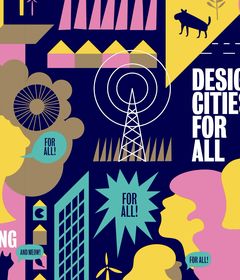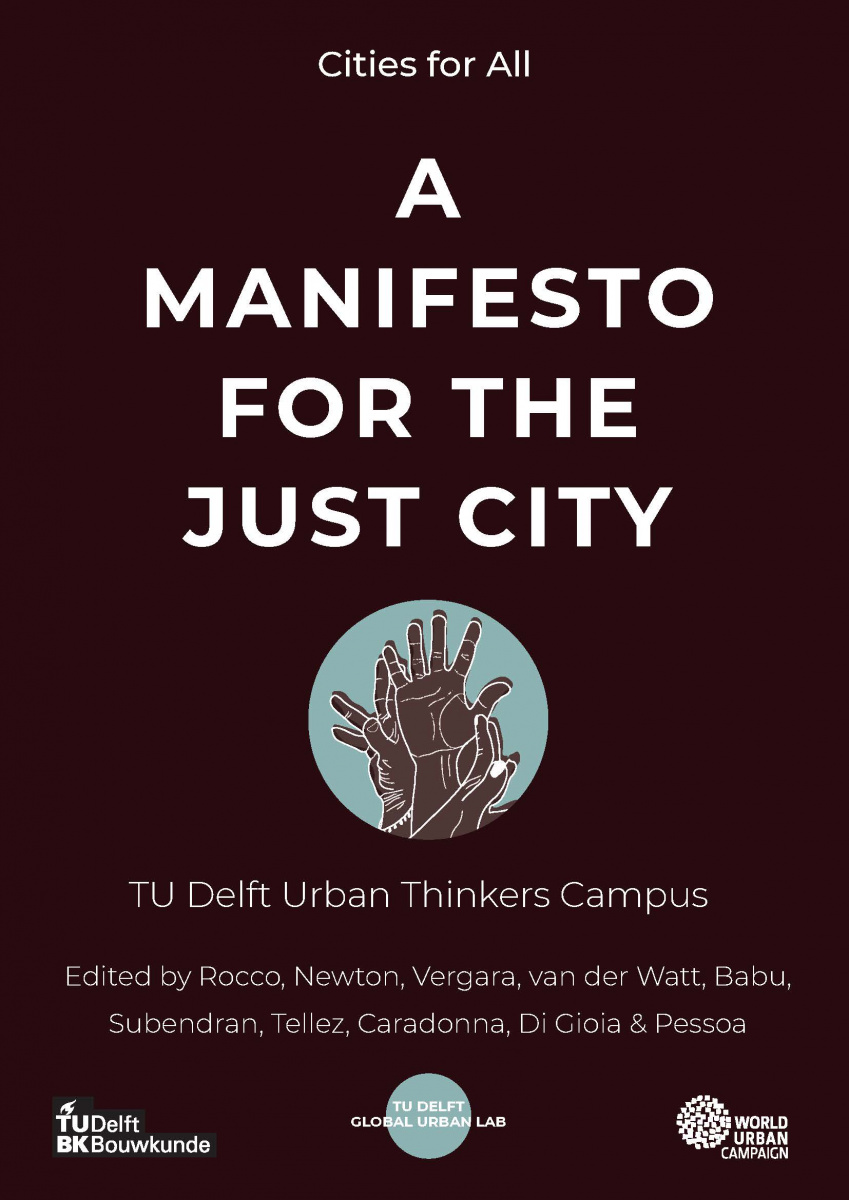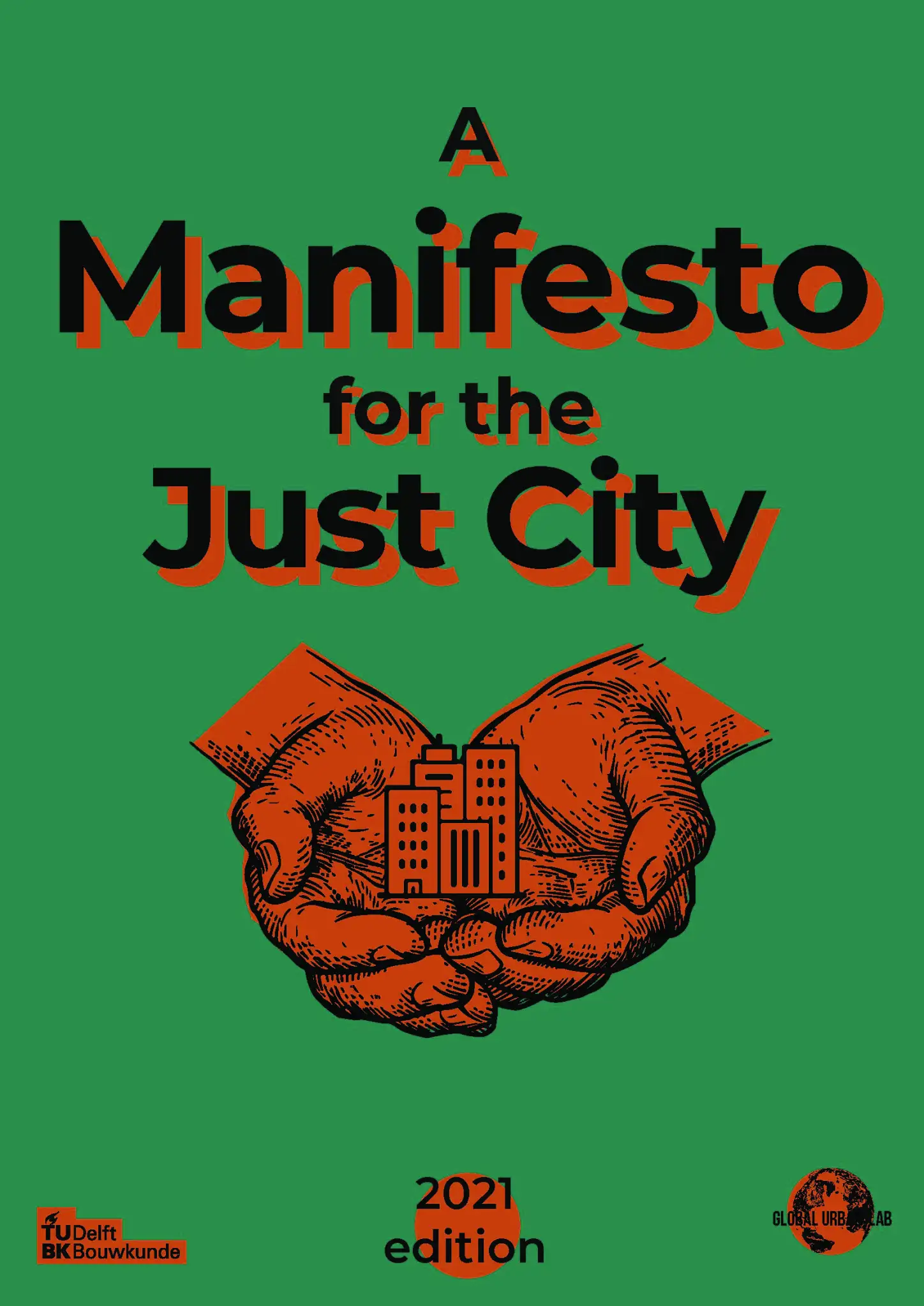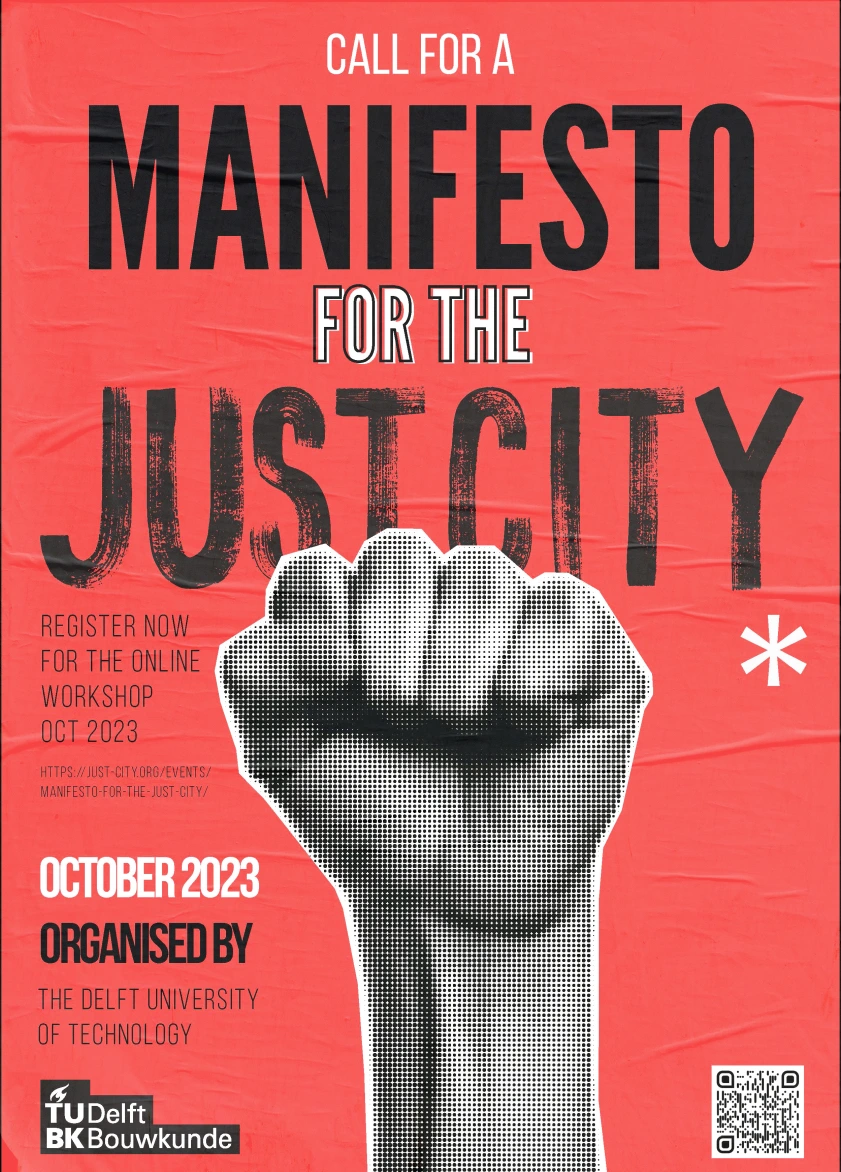Manifesto for the Just City comes in the wake of the realization that socio-spatial justice is a crucial dimension for sustainability transitions. Growing inequality and the erosion of the public sphere Undermine the social and political structures required to fight climate change, pandemics and other systemic shocks. This book aims to encourage students to formulate their own visions for the Just City and for a just transition.
In this event we will launch the third volume of ‘A Manifesto for the Just City’ published by TU Delft Open and funded by the Delft Design for Values Institute .











The first volume of ‘A Manifesto for the Just City’ was published by TU Delft in collaboration with the World Urban Campaign. To get an idea of the different perspectives on Just Cities, you can download the publication of 2021 here or order the hard copy through this link .

A Manifesto for the Just City Vol. i
The second volume of ‘A Manifesto for the Just City’, published by TU Delft Open and funded by the Delft Design for Values Institute, gathers texts from scholars discussing aspects of the just city (Professors Faranak Miraftab , Mona Fawaz, Mariana Fix , Romola Sanyal, Roberto Rocco, and Caroline Newton) and showcases 63 manifestos written by 256 students from 48 universities all over the world. You can download the publication of 2021 here or order the hard copy through this link.

About the speakers
Roberto Rocco is an Associate Professor of Spatial Planning and Strategy at the Department of Urbanism (TU Delft). He is a specialist in governance for the built environment. This includes issues of spatial justice and social sustainability as crucial dimensions of sustainability transitions. He also leads the discussion on diversity and inclusion at the faculty he works for and he is one of the people behind A Manifesto for the Just City
Caroline Newton is an urban planner, an architect, and a political scientist. Her work and research focus on the socio-spatial dimensions of design and critical spatial practices in Europe and the Global South. She believes that academic work should be a direct connection between interdisciplinary scholarly research and social engagement, thereby actually contributing to a more socially and environmentally just society. She is also one of the people behind A Manifesto for the Just City
Juliana Gonçalves is an Assistant Professor in the Department of Urbanism (TU Delft). She is also the co-director of the Center for Urban Science (CUSP), a member of the Delta Urbanism Interdisciplinary Research Program, and a member of the Climate Action Program at TU Delft. Her research interests include urban inequalities & spatial justice, climate change adaptation & urban resilience, energy transition, housing & building renovation, public participation & citizen empowerment, and related planning and policy implications. She is also one of the people behind A Manifesto for the Just City
Rudolf Perold is the Programme Coordinator of the Advanced Diploma in Architectural Technology at the Cape Peninsula University of Technology (Cape Town, South Africa). This programme is unique in its use of blended learning to enable built environment professionals to further their studies while working. His work crosses the boundary between architecture and human geography, and focuses on the socio-cultural aspects of architectural practice in formal and informal contexts. He is also one of the people behind A Manifesto for the Just City
Are you interested in participating in Manifesto for the Just City 2023?

The workshop “Manifesto for the Just City” , now in its fourth edition, is a digital lecture and debate series composed of four online sessions with leading academics and practitioners in the fields of urban theory, urban planning, and spatial justice. Upon participation in the online lecture series, teams of students are invited to draft a Manifesto for the Just City, expressing what their visions for cities that are sustainable, fair, and inclusive for all.





